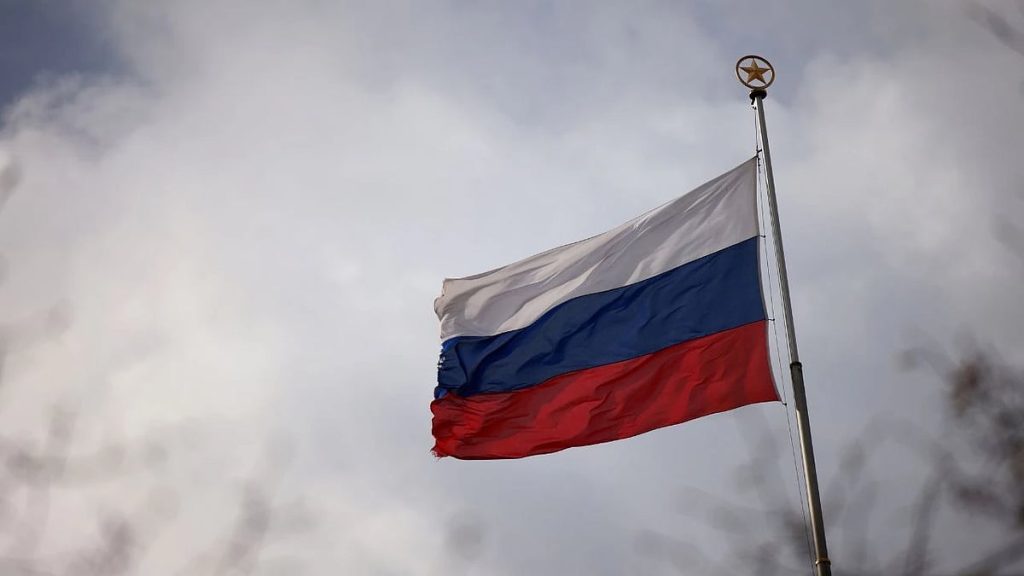Listen to the article
Russia’s embassy in Pakistan has publicly criticized The Frontier Post newspaper for publishing what it describes as a series of articles with an anti-Russia bias, accusing the publication of amplifying Western propaganda narratives.
In a statement shared on social media platform X, the Russian diplomatic mission expressed “deep concern” about the newspaper’s coverage, questioning its independence and suggesting its content may be influenced by foreign interests.
“We wish to clarify that this publication can scarcely be called ‘Pakistani,’ as its international news service is based in Washington,” the embassy stated. “It is this very US-tinged team that is responsible for selecting global news and consistently prioritizes authors who hold anti-Russia views and are critics of Russian foreign policy and President Vladimir Putin.”
The embassy pointed to what it considers systematic bias in the newspaper’s international coverage, noting that no articles presenting Russia or its leadership in a positive or even neutral light have been published recently. While acknowledging the principle of freedom of expression, Russian diplomats suggested that the newspaper’s editorial policy appears driven by “the political agenda of anti-Russia forces” rather than balanced reporting.
One specific example highlighted by the embassy was The Frontier Post’s failure to cover the Moscow Format Consultation on Afghanistan held on October 7. The embassy noted this omission was particularly striking given that the newspaper maintains a dedicated section for Afghanistan news, and the event received “extensive coverage” in other Pakistani media outlets.
“This approach further highlights the anti-Russia bias of the newspaper’s Western-oriented editorial staff and indicates a lack of interest in highlighting Pakistan’s stance on regional affairs,” the statement continued.
Russian officials took particular issue with recurring narratives in the publication that characterize Russia as having a “weak economy,” being “vulnerable in the face of sanctions,” and facing “military superiority of Western countries.” The embassy dismissed these as “worn-out Western propaganda narratives.”
“Journalists of The Frontier Post, sitting in Washington, are distorting facts to portray Russia as a country supposedly on the brink of economic collapse, thereby providing justification for new Western sanctions—which ultimately harm the very economies of the countries imposing them,” the embassy asserted.
In countering these economic narratives, the Russian mission highlighted that despite facing “unprecedented external pressure,” Russia’s economy has shown resilience with its gross domestic product (GDP) recording a 4.1 percent rise and growth in industrial sectors reaching up to 8.5 percent.
This public criticism comes amid Russia’s continued efforts to strengthen its diplomatic and economic ties with Pakistan and other countries in the region. The dispute also reflects broader geopolitical tensions, as Russia works to counter Western narratives about its economy and military capabilities, particularly in the context of the ongoing conflict in Ukraine.
The embassy concluded its statement by urging Pakistani readers to seek information from “credible sources” rather than publications it claims are “engaged in fulfilling the dubious aims of foreign patrons.”
The Frontier Post has not yet publicly responded to the Russian embassy’s accusations. Media analysts note that such diplomatic criticisms of local press coverage are relatively uncommon and reflect heightened sensitivities around international reporting on Russia’s global position.
Fact Checker
Verify the accuracy of this article using The Disinformation Commission analysis and real-time sources.




8 Comments
While the embassy has a right to respond to coverage it deems unfair, accusing the newspaper of being influenced by foreign interests is a serious charge. It would be better for them to engage with the specific criticisms raised rather than attack the publication’s credibility.
Agreed, the embassy’s response seems more focused on discrediting the newspaper than addressing the substance of the reporting. A more constructive approach would be to provide their perspective and counter the claims made in the articles.
Interesting that the Russian embassy would criticize a Pakistani newspaper’s coverage as ‘anti-Russia’. Seems like they are trying to control the narrative and stifle dissenting views. I wonder if there’s more to the story than meets the eye.
This incident illustrates the challenges facing media outlets when reporting on geopolitical issues involving powerful nations. They have to navigate between maintaining editorial independence and avoiding backlash from governments. It’s a delicate balance that is crucial for preserving press freedom.
This incident reflects the ongoing geopolitical tensions and the battle for narrative control, especially around controversial topics like the Russia-Ukraine conflict. It will be interesting to see if the Pakistani newspaper stands its ground or changes its coverage in response to the embassy’s pressure.
The Russian embassy’s response highlights the sensitivity around coverage of its actions and policies. While freedom of the press is important, it’s understandable they would want favorable reporting. But accusing the newspaper of being influenced by foreign interests is a concerning tactic.
I agree, the embassy’s accusations about foreign influence seem like an attempt to discredit the newspaper’s reporting rather than engage with the substance of the coverage.
The Russian embassy’s response raises questions about the state of press freedom in Pakistan and the ability of local media to report critically on foreign powers without facing backlash. It highlights the delicate balance between national interests and journalistic independence.